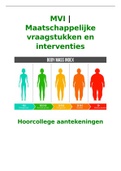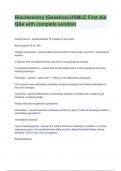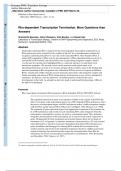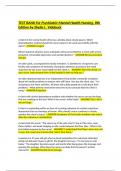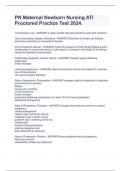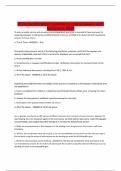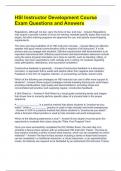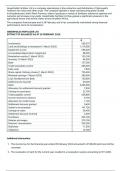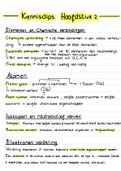Class notes
College aantekeningen Maatschappelijke vraagstukken en interventies
- Course
- Institution
Samenvatting van ALLE college aantekeningen (college 1 tot en met 12) van Maatschappelijke vraagstukken en interventies, uit het eerste jaar van de bachelor Sociologie aan de VU (jaar ). Incl. begrippenlijst van de eerste twee colleges en zeer uitgebreid uitgewerkte aantekeningen
[Show more]
